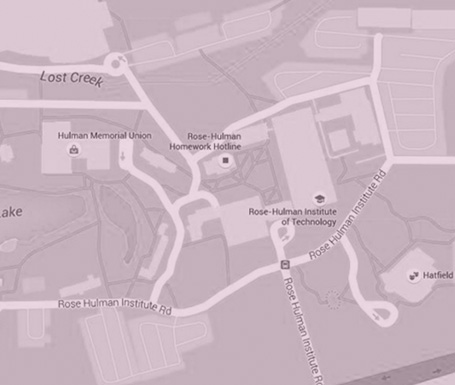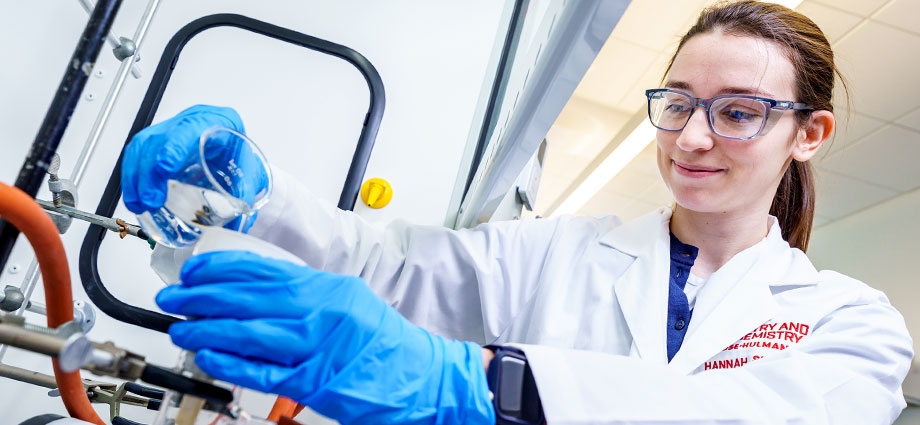
You’ll have plenty of opportunities to work in our recently renovated facilities, including a modern biochemistry research-teaching lab, three research labs, fully equipped organic and freshman labs, and an instrument facility.

You’ll have plenty of opportunities to work in our recently renovated facilities, including a modern biochemistry research-teaching lab, three research labs, fully equipped organic and freshman labs, and an instrument facility.
The laboratory facilities at Rose-Hulman are world class. Our seven, recently renovated spaces include a modern biochemistry research-teaching laboratory, three research laboratories, fully equipped organic and freshman laboratories, and an instrument facility.
Additional support is available from the Enterprise Information Technology (EIT) Center and the Logan Library on campus. Computing facilities from mainframe to microcomputers are available to all Rose-Hulman students for writing reports, analyzing data, and developing useful programs. The library provides an excellent technical collection, including many important chemical references and journals, in addition to interlibrary loan and database search services.
As early your freshman year, you’llbe using instruments and equipment that are mainstays of industry and chemical research, including equipment such as:
300 MHz NMR (nuclear magnetic resonance):
Much like the MRI device, it can identify the component based upon the unique magnetic properties of the nuclei from the atoms that make up the molecule.
MALDI Mass Spectrometer:
This instrument uses matrix-assisted laser desorption to ionize molecules for the purpose of determining the mass of molecules and is a state-of-the-art technique for detecting and identifying biomolecules.
Gas Chromatograph-Mass Spectrometers:
These instruments separate and determine the molecular mass of molecules in a mixture of components.
High Performance Liquid Chromatography (HPLC):
An invaluable tool in separating and identifying solutions with multiple components. One instrument is coupled to a mass spectrometer to allow for identification of molecules in a mixture by mass.
UV-visible and Fluorescent Spectrometers:
These instruments measure the absorbance of ultraviolet and visible light or the emission of fluorescent light by molecules. These instruments are widely used in chemistry and biochemistry to measure compounds in solution.
View our laboratories and equipment below.
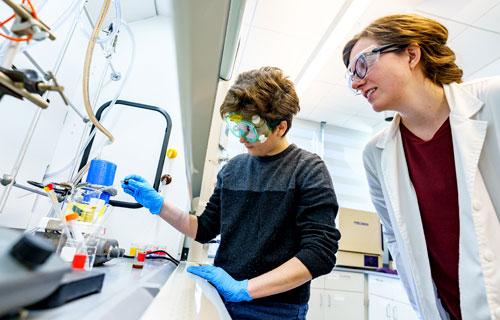
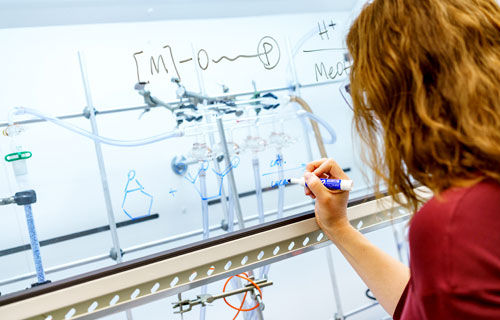
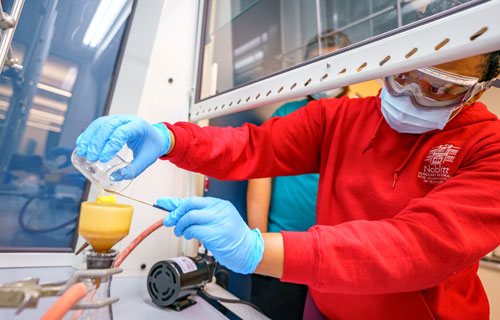
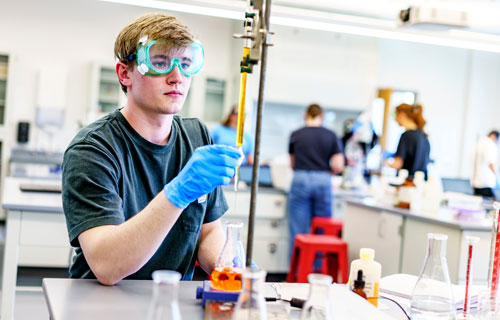
Nothing in life is to be feared, it is only to be understood. Now is the time to understand more, so that we may fear less.
We offer multiple options for an entering freshman that provide a solid foundation in chemistry and exposure to many disciplines. You can major or minor in chemistry, or major in biochemistry. Additionally, chemistry majors can select biochemistry-molecular biology as a second degree.
If you love hands-on learning as well as chemistry and biology, you'll love biochemistry at Rose-Hulman. You'll work closely with faculty and other students on exciting research, preparing you for medical school, grad school, or the professional world.
A chemistry degree is an excellent preparation for jobs or graduate studies in fields such as pharmaceutical chemistry, environmental chemistry, and forensics. Graduates also pursue medical school or careers in business, law, or education.
Offered exclusively as a second major or as a minor, Biochemistry & Molecular Biology gives you an opportunity to augment your education in this technically-important field. If your first major is in chemistry or chemical engineering, you’ll find considerable overlap with your biochemistry and molecular biology courses. Students from other disciplines are also encouraged to participate, but will have to take more courses to complete the major.
To earn this second major, you’ll need 81 credit hours, including courses in organic chemistry, biochemistry, physical chemistry, and genetic engineering. Elective courses include subjects such as virology, cancer biology, and genomics and proteomics. For more details, see the Course Catalog.
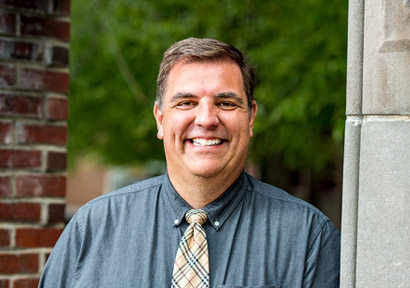
Department Head and Professor of Chemistry and Biochemistry Dr. Ross Weatherman has received the Board of Trustees Outstanding Scholar Award and was an American Cancer Society Postdoctoral Fellow at the University of California, San Francisco. He leads a team of high-achieving students in researching the role of estrogen in the development and treatment of breast cancer. Their work seeks to improve existing drugs, resulting in better treatments with fewer side effects. The value of his research has been recognized with grants totaling $2 million from the National Institutes of Health and the U.S. Army. Dr. Weatherman also has developed strong collaborations with the Indiana University School of Medicine and has authored more than 20 peer-reviewed research publications.
